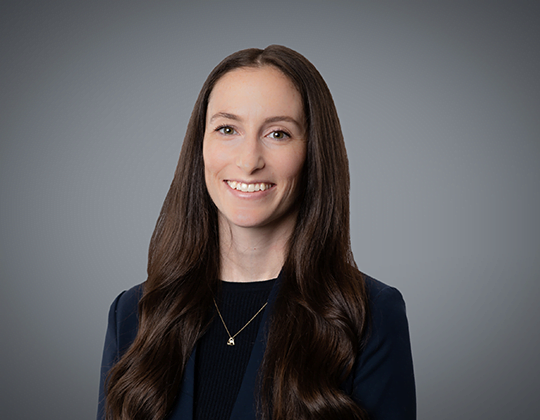The COVID-19 pandemic has had a substantial impact on all facets of society, especially within the healthcare system. In navigating these unprecedented terrains, health professionals have turned to diverse treatments, some of which lacked scientific and evidence-based support. Regulated health professionals and patients alike have at times sought to challenge the guidance and decisions of health regulators concerning COVID-related treatments and public health measures, including by bringing applications for judicial review. The resulting court decisions provide welcome guidance on these issues, which are still largely uncharted and are being grappled with in the aftermath of the pandemic.
Overview
In Kustka v. College of Physicians and Surgeons of Ontario,[1] the Divisional Court considered applications for judicial review seeking to quash the College of Physicians and Surgeons of Ontario’s (the “CPSO”’s) appointment of investigators and the Inquires Complaints and Reports Committee’s (“ICRC”) interim order. In Kustka, a family medicine practitioner was alleged to have inappropriately prescribed ivermectin to an elderly patient to treat COVID-19, and to have inappropriately issued two COVID-19 mask exemptions. The physician’s patients joined her in the application for judicial review, arguing that the CPSO had violated their Charter rights.
The Court provided strong reasoning in support of its decision to remove the patients as respondents, to decline the patients standing, and to quash the applications for judicial review as premature. It went on to provide useful commentary with respect to the “reasonable and probable grounds” test that applies where investigators are appointed under section 75(1)(a) of the Health Professions Procedural Code, Schedule 2 of the Regulated Health Professions Act, 1991, S.O. 1991, c. 18 (the “Code”), and with respect to the CPSO’s reliance on the following sources to support its reasonable and probable grounds:
- Reg 364/20, which provided that face masks should be worn in most indoor public areas subject to limited exceptions for those with medical conditions;
- Guidance from the Ontario College of Family Physicians stating that very few conditions justified an exemption;
- Guidance from the Canadian Thoracic Society supporting mask-wearing and stating that there was no evidence that masks would exacerbate an underlying lung condition; and,
- Guidance from Health Canada and the Ontario Science Table indicating that ivermectin should not be used to prevent or treat COVID-19.
Facts
In late 2021, the CPSO received complaints that Dr. Sonia Kustka, a family medicine practitioner, had inappropriately prescribed ivermectin to an elderly patient to treat COVID-19 and issued two questionable COVID-19 mask exemptions during mandatory masking periods.
The CPSO’s Registrar appointed investigators to examine acts of professional misconduct or incompetence pursuant to section 75(1)(a) of the Code.[2] Following an investigation, the CPSO’s ICRC imposed interim restrictions and monitoring obligations on Dr. Kustka’s certificate of registration.[3] The ICRC later confirmed the restrictions, and the Registrar appointed investigators to examine Dr. Kustka’s cooperation with the investigation and her compliance with the interim order.[4] Dr. Kustka brought applications for judicial review in relation to each of these steps.[5] Dr. Kustka’s patients also brought applications for judicial review that challenged the initial appointment of investigators, the CPSO’s ability to obtain patient records during the investigation, and the ICRC’s interim order.[6] The patients argued that the CPSO had infringed their rights under sections 7 and 8 of the Canadian Charter of Rights and Freedoms,[7] claiming that the CPSO obtained medical records without their knowledge and consent (the “Patients’ Applications”).[8]
Appointment of Investigators and Reasonable and Probable Grounds
The Divisional Court held that the test for determining whether the Registrar had reasonable and probable grounds to appoint an investigator is not rigorous.[9] The Court distinguished the reasonable and probable grounds test in the professional regulatory context from the test used in the criminal context. It noted that the Registrar’s appointment only initiates an investigation, whereas in the criminal context, an arresting officer requires something less than a prima facie case to satisfy the reasonable and probable ground requirement prior to an arrest.[10] Here, the Registrar had before her specific information regarding three instances that raised concern about Dr. Kustka’s COVID-19 treatment and protections. The information was sufficiently detailed as to be beyond “mere suspicion.”[11] It was reasonable for the Registrar to conclude that the test to appoint investigators had been met.[12]
The Registrar also had before her authoritative sources and guidance regarding mask-wearing and ivermectin, including: (1) Reg 364/20, which provided that face masks should be worn in most indoor public areas subject to limited exceptions for those with medical conditions; (2) Guidance from the Ontario College of Family Physicians stating that very few conditions justified an exemption; (3) Guidance from the Canadian Thoracic Society supporting mask-wearing and stating that there was no evidence that masks would exacerbate an underlying lung condition; and, (4) Guidance from Health Canada and the Ontario Science Table indicating that ivermectin should not be used to prevent or treat COVID-19.
The Court concluded that the Registrar (and the ICRC in approving of her appointment) reasonably relied upon these policy documents and regulation in forming her reasonable and probable grounds.[13] This reliance was reasonable and did not constitute an impermissible delegation of authority.[14]
Conclusion
It remains to be seen whether Dr. Kustka’s arguments will be repeated before the CPSO’s Discipline Committee. If those arguments are reiterated, the Court’s comments and “observations” will provide the Discipline Committee with useful guidance. Though the ICRC does not make findings of fact, the Divisional Court clearly had significant concerns with respect to the physician’s failure to cooperate with the CPSO’s investigation and noted that this failure both delayed the proceeding and provided a reasonable basis for the ICRC to be concerned about the physician’s governability.[15]
The information and comments herein are for the general information of the reader and are not intended as advice or opinion to be relied upon in relation to any particular circumstances. For particular application of the law to specific situations, the reader should seek professional advice.
[1] Kustka v. College of Physicians and Surgeons of Ontario, 2023 ONSC 2325 at para 1 [“Kustka”].
[5] (1) the Registrar’s appointment of investigators, (2) the ICRC’s interim order, (3) the ICRC’s decision confirming the interim order, and (4) the Registrar’s second appointment of investigators to assess Dr. Kustka’s cooperation with the investigation and her compliance with the interim order.
[7] Canadian Charter of Rights and Freedoms Part I of the Constitution Act, 1982, being Schedule B to the Canada Act 1982 (UK), 1982, c 11.

